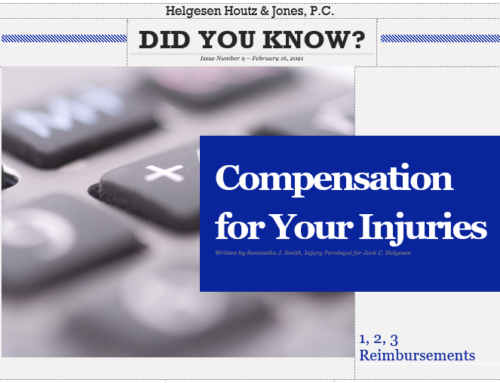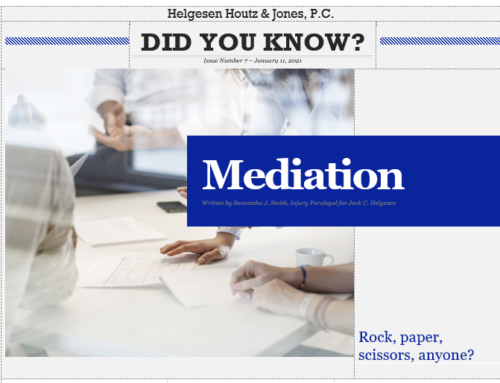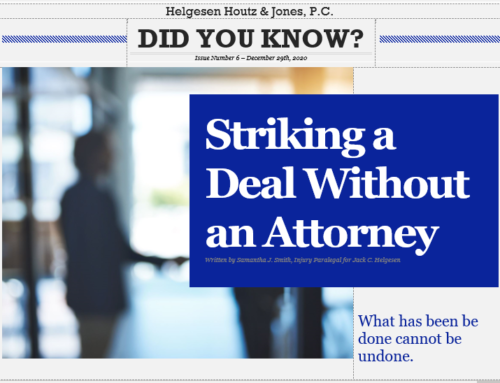The American Bar Association’s Witness Rules for Depositions
___________________________________
- Speak slowly and clearly.
- Pause after each question.
- Listen to objections and instructions.
- Tell the truth.
- Short answers are best.
- Do not answer unclear questions.
- Ask for a break if needed.
- Read documents carefully.
- Do not conclude instructions.
A deposition is when you provide answers to questions under oath. A court reporter is present and will produce a written transcript of your testimony. If you file a complaint with the court, it is a safe bet that you will have to give a deposition.
Depositions can be scary regardless of whether you have participated in one before. And, after many years of providing testimony at trial as a Crime Scene Technician, I completely understand.
The good news is that a deposition does not have to be intimidating. I have heard Jack Helgesen give a pre-deposition explanation to his clients a million times. It is always the same. “Tell the truth.” Nothing is easier than being honest and truthfulness makes for the best witnesses.
Sometimes, the truth is that you do not know. Maybe you just cannot remember. Saying “I don’t know” or “I cannot recall” is almost always better than trying to guess an answer.
I also find it helpful to remember that this is a time for you to tell your story. While you are not allowed to talk freely, when you are asked a question, you provide a direct answer. Your response should not be over complicated by the facts you think are important. Trust me, the attorneys know what they are looking for and will ask a series of questions to get a more complete answer, if necessary. If you base your
answers on how you think the attorney wants it answered or if you think they are trying to trick you somehow, you may end up hurting yourself. Just as how the questioning attorneys knows what they will ask, your attorney understands why it was asked. Your attorney’s job is to listen and object if need be. It is important to not become frustrated that you may not be able to elaborate on your answers. Do not worry. Your attorney will be allowed to ask their own questions. We call this a redirect.
Moreover, you and your attorney can request breaks and will likely take a break before the redirect.
I have also discovered that depositions are a chance for your legal team to see how you or other witnesses will appear to a judge or jury at a trial. So, it is safe to assume that the other attorney will see that too. As a matter of fact, I have seen a settlement take place shortly after a client’s deposition because “they are too likeable.”
This all leads me to assure you that depositions are not like the movies. Actually, they can be rather boring, no offense. Attorneys do not yell and slam fists on the table, no one has a sudden win, and the deponent is not belittled into submission.
Just relax, be yourself, and tell the truth.
Disclaimer: This article is not intended to be used as legal advice and is not a blanket for every situation. You should always consult with your attorney.







Leave A Comment